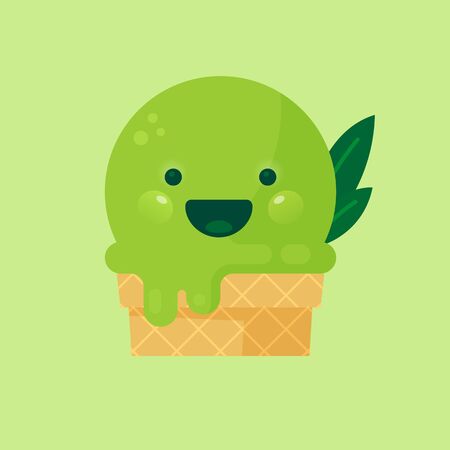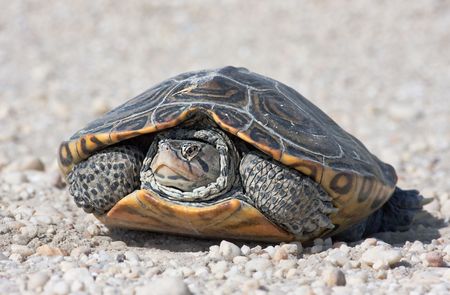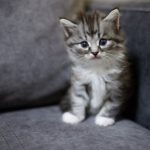Introduction to Pionus Parrots
Pionus parrots are a fantastic choice for bird lovers looking for a pet that is both low-maintenance and full of personality. These medium-sized parrots are known for their calm demeanor, unique vocalizations, and stunning plumage. Unlike some high-energy parrot species, Pionus parrots tend to be more independent and less demanding, making them an excellent option for first-time bird owners.
Distinct Characteristics of Pionus Parrots
One of the most striking features of Pionus parrots is their subtle yet beautiful coloration. Unlike the bright and flashy feathers of macaws or conures, Pionus parrots have a more understated elegance with deep blues, greens, and purples. They also have a noticeable bare patch around their eyes and a short, stocky build.
| Characteristic | Description |
|---|---|
| Size | Approximately 10-12 inches in length |
| Lifespan | Up to 25-30 years with proper care |
| Temperament | Calm, affectionate, and independent |
| Vocalization | Quiet compared to other parrots, with soft whistles and chirps |
| Color Variations | Primarily blue, green, and purple hues depending on the species |
Origin and Natural Habitat
Pionus parrots are native to Central and South America, where they inhabit tropical forests, woodlands, and mountainous regions. They are often found in small flocks or pairs, foraging for fruits, seeds, and flowers. Their adaptability to different environments makes them resilient pets when provided with proper care.
Why Pionus Parrots Make Excellent Pets
There are many reasons why Pionus parrots are considered great pets. They are not as loud as other parrot species, making them ideal for apartment living. Their independent nature means they can entertain themselves without constant attention while still forming strong bonds with their owners. Additionally, they are generally healthier than some other parrot breeds since they are less prone to feather plucking and stress-related illnesses.
Key Benefits of Owning a Pionus Parrot:
- Low Noise Level: Perfect for those who prefer a quieter bird.
- Easy Maintenance: Requires less attention compared to more demanding parrot species.
- Long Lifespan: Can be a lifelong companion with proper care.
- Affectionate Yet Independent: Forms strong bonds but does not demand constant interaction.
- Diverse Coloration: Unique beauty without excessive flashiness.
If youre looking for a pet bird that is both charming and manageable, Pionus parrots could be the perfect choice. Their gentle nature, stunning appearance, and relatively easy care requirements make them an excellent addition to any bird-loving household.
2. Why Pionus Parrots Are Considered Low-Maintenance
Pionus parrots are often praised for being one of the easier parrot species to care for. While all parrots require commitment, Pionus parrots stand out due to their relatively simple care needs. Lets explore why they are considered low-maintenance compared to other parrot species.
Diet: Simple and Balanced
Pionus parrots thrive on a diet that includes high-quality pellets, fresh fruits, and vegetables. Unlike some parrot species that require highly specialized diets or frequent dietary adjustments, Pionus parrots are not overly picky eaters.
| Food Type | Examples | Feeding Frequency |
|---|---|---|
| Pellets | High-quality commercial parrot pellets | Main portion of daily diet |
| Fresh Fruits | Apples, bananas, berries (seedless) | A few times per week |
| Vegetables | Carrots, spinach, bell peppers | Daily |
| Treats | Nuts, seeds (in moderation) | Occasionally as a reward |
Cage Setup: Spacious but Not Complicated
Pionus parrots do well in a medium-sized cage with horizontal bars for climbing. They don’t demand extravagant setups or excessive amounts of toys like more active species such as macaws or cockatoos.
- Cage Size: Minimum 24″x24″x36″, larger is always better.
- Perches: Natural wood perches of varying diameters help maintain foot health.
- Toys: A moderate number of chewable toys and foraging items keep them entertained.
- Cage Cleaning: Spot-clean daily and deep clean weekly.
Grooming: Minimal Maintenance Required
Pionus parrots have relatively simple grooming needs compared to high-maintenance birds like cockatoos. Their feathers don’t produce excessive dust, making them a good choice for those sensitive to allergens.
Basic Grooming Requirements:
- Nail Trimming: Every few months or as needed.
- Bathing: Mist-spraying or access to a shallow water dish once or twice a week.
- Beak Maintenance: Usually maintained naturally with chewing materials.
- Wing Trimming: Optional, depending on owner preference and bird safety considerations.
How Pionus Parrots Compare to Other Parrots in Maintenance Needs
| Parrot Species | Diet Complexity | Cage Maintenance | Grooming Needs | Noisiness Level |
|---|---|---|---|---|
| Pionus Parrots | Moderate (pellets, fruits, veggies) | Standard cleaning routine | Minimal grooming required | Quiet and low-noise level |
| African Grey Parrots | Diverse and nutrient-specific diet needed | Frequent cleaning due to messy eating habits | Higher maintenance; feather dust production is significant | Loud vocalizations and mimicry skills make them noisy at times |
| Cockatoos | Diverse diet with fresh foods daily | Cages get messy quickly; frequent deep cleaning required | High-maintenance; produce large amounts of feather dust | Loud and demanding; need constant interaction |
| Budgies (Parakeets) | Simpler diet but requires variety for nutrition balance | Easier to clean due to smaller size but still needs regular upkeep | Mild grooming needs but prone to overgrown nails/beaks if unchecked | Noisy chirpers but less loud than larger parrots |
The Bottom Line on Pionus Parrots Care Needs
Pionus parrots strike a great balance between being affectionate pets and having relatively low-maintenance care requirements. Their diet is straightforward, their cage setup isn’t complicated, and their grooming needs are minimal compared to many other parrot species. For bird lovers looking for an easygoing companion without the overwhelming demands of more high-maintenance parrots, the Pionus is an excellent choice.

3. Unique Personality Traits of Pionus Parrots
Pionus parrots are known for their distinctive personality traits that make them a great choice for bird enthusiasts seeking a calm and affectionate companion. Unlike some other parrot species, Pionus parrots tend to be more laid-back and less demanding while still forming strong bonds with their owners.
Calm and Gentle Nature
One of the standout characteristics of Pionus parrots is their calm demeanor. They are generally not as hyperactive or noisy as other parrot species, making them ideal for those who prefer a quieter pet. While they do enjoy playtime and social interactions, they are not overly demanding and can entertain themselves when needed.
Intelligence and Learning Ability
Pionus parrots are highly intelligent birds capable of learning various tricks and commands. With patience and positive reinforcement, they can pick up simple words and phrases, though they are not as talkative as some other parrot breeds like African Greys or Amazons. Their intelligence also makes them great problem-solvers, and they enjoy engaging in activities that challenge their minds.
Strong Bond with Owners
These parrots form deep connections with their human caregivers. While they may not be as clingy as some other species, they still enjoy spending time with their owners and being involved in daily activities. They appreciate gentle handling and often show affection through subtle behaviors like sitting close or softly vocalizing to their favorite person.
Quieter Than Other Parrots
Compared to many other parrot species, Pionus parrots are relatively quiet. While they do make sounds, their vocalizations are usually softer and less frequent than those of louder birds like macaws or cockatoos. This makes them an excellent choice for individuals or families living in apartments or noise-sensitive environments.
Pionus Parrots vs. Other Popular Parrot Species
| Trait | Pionus Parrots | African Grey Parrots | Macaws |
|---|---|---|---|
| Noise Level | Low to Moderate | Moderate to High | High |
| Bonding with Owners | Strong but Independent | Very Strong | Very Strong |
| Talking Ability | Limited Vocabulary | Extensive Vocabulary | Moderate Vocabulary |
| Energy Level | Moderate | Moderate to High | High |
Pionus parrots strike a wonderful balance between being affectionate and independent, making them a fantastic choice for those looking for a charming yet low-maintenance feathered friend.
4. Training and Socialization
Training and socializing your Pionus parrot is essential for building a strong bond and ensuring they develop into well-behaved companions. These parrots are naturally gentle but can be shy at first, so patience and consistency are key.
Building Trust with Your Pionus Parrot
Before beginning any training, its important to establish trust. Pionus parrots can be cautious around new people, so take your time to help them feel comfortable.
Steps to Build Trust:
| Step | Description |
|---|---|
| Give Them Space | Avoid forcing interaction; allow them to observe you from a safe distance. |
| Use a Calm Voice | Speak softly and avoid sudden movements to prevent startling them. |
| Offer Treats | Use their favorite treats to create positive associations with your presence. |
| Hand-Feed Slowly | Encourage them to take food from your hand to build confidence. |
| Spend Time Nearby | Sit near their cage without interacting directly, letting them get used to you. |
Teaching Basic Commands
Pionus parrots are intelligent and can learn simple commands with patience and repetition. Start with easy commands like “Step Up” and “Step Down.”
“Step Up” Command:
- Hold out your finger or perch near their feet.
- Say “Step Up” in a clear, consistent tone.
- If they hesitate, gently nudge their lower chest to encourage movement.
- Praise and reward them with a treat when they step up.
- Repeat daily for reinforcement.
“Step Down” Command:
- Move them toward a perch or surface where they can step down safely.
- Say “Step Down” as you guide them gently onto the surface.
- Praise and reward immediately after success.
- Practice regularly for better retention.
Encouraging Positive Behavior
Pionus parrots respond best to positive reinforcement. Reward good behavior while ignoring unwanted actions instead of punishing them.
Tips for Encouraging Good Behavior:
- Praise Often: Use verbal praise like “Good bird!” when they follow commands correctly.
- Treat Rewards: Give small treats immediately after desired behavior to reinforce learning.
- Avoid Negative Reactions: Ignoring minor misbehavior is often more effective than scolding.
- Create a Routine: Consistent training times help establish expectations and comfort.
- Toys for Engagement: Provide toys that encourage mental stimulation and prevent boredom-related issues.
Pionus parrots thrive on gentle guidance and consistent interaction. With time, patience, and positive reinforcement, your parrot will become a well-mannered and affectionate companion.
5. Common Health Concerns and Lifespan
Pionus parrots are generally hardy birds, but like all pets, they can experience health issues. Understanding potential health concerns, recognizing signs of illness early, and ensuring regular vet visits will help keep your Pionus happy and healthy for years to come.
Potential Health Issues
While Pionus parrots are known for their strong immune systems, they are still susceptible to a few common health problems. Below are some conditions that Pionus owners should be aware of:
| Health Issue | Description | Prevention Tips |
|---|---|---|
| Aspiration Pneumonia | A respiratory infection often caused by inhaling food or liquid improperly. | Avoid force-feeding and ensure a clean environment with proper humidity levels. |
| Obesity | Pionus parrots have a tendency to gain weight if overfed or given a poor diet. | Provide a balanced diet with plenty of fruits, vegetables, and limited seeds. |
| Vitamin A Deficiency | Lack of vitamin A can lead to respiratory issues and weakened immunity. | Include vitamin A-rich foods like carrots, sweet potatoes, and leafy greens. |
| Bacterial & Fungal Infections | Poor hygiene can lead to infections in the respiratory system or digestive tract. | Keep the cage clean and ensure fresh food and water daily. |
Signs of Illness to Watch For
Pionus parrots tend to hide signs of illness until they become severe, so it’s crucial to monitor their behavior closely. Look out for these symptoms:
- Lethargy: If your bird is unusually quiet or inactive, it may be unwell.
- Puffed-Up Feathers: Birds fluff up their feathers when cold or sick.
- Nasal Discharge or Labored Breathing: Could indicate respiratory infections.
- Lack of Appetite: A sudden refusal to eat may signal underlying health problems.
- Droppings Changes: Unusual color, consistency, or frequency in droppings could mean illness.
- Sneezing or Wheezing: Persistent sneezing might be a sign of respiratory distress.
The Importance of Regular Vet Visits
A yearly visit to an avian veterinarian is essential for keeping your Pionus parrot in top shape. Routine checkups can help detect hidden illnesses before they become serious. If you notice any unusual behavior or symptoms, schedule an appointment immediately rather than waiting for the next annual checkup.
Lifespan and Proper Care
Pionus parrots have an impressive lifespan when properly cared for. On average, they live between 25 to 40 years. With good nutrition, mental stimulation, regular exercise, and proper veterinary care, some Pionus parrots even surpass 40 years!
Pionus Parrot Lifespan Overview
| Lifespan Factor | Description |
|---|---|
| Adequate Diet | A well-balanced diet rich in nutrients supports longevity. |
| Mental Stimulation | Toys, social interaction, and training prevent stress-related illnesses. |
| Cage Cleanliness | A clean living environment reduces bacterial infections. |
| Veterinary Checkups | An annual vet visit ensures early detection of potential health issues. |
| Avoiding Toxins | No exposure to smoke, toxic fumes (Teflon), or harmful plants. |
Pionus parrots are relatively low-maintenance compared to other parrot species when it comes to health care. However, ensuring they receive proper attention and care will go a long way in providing them with a happy and healthy life by your side.


